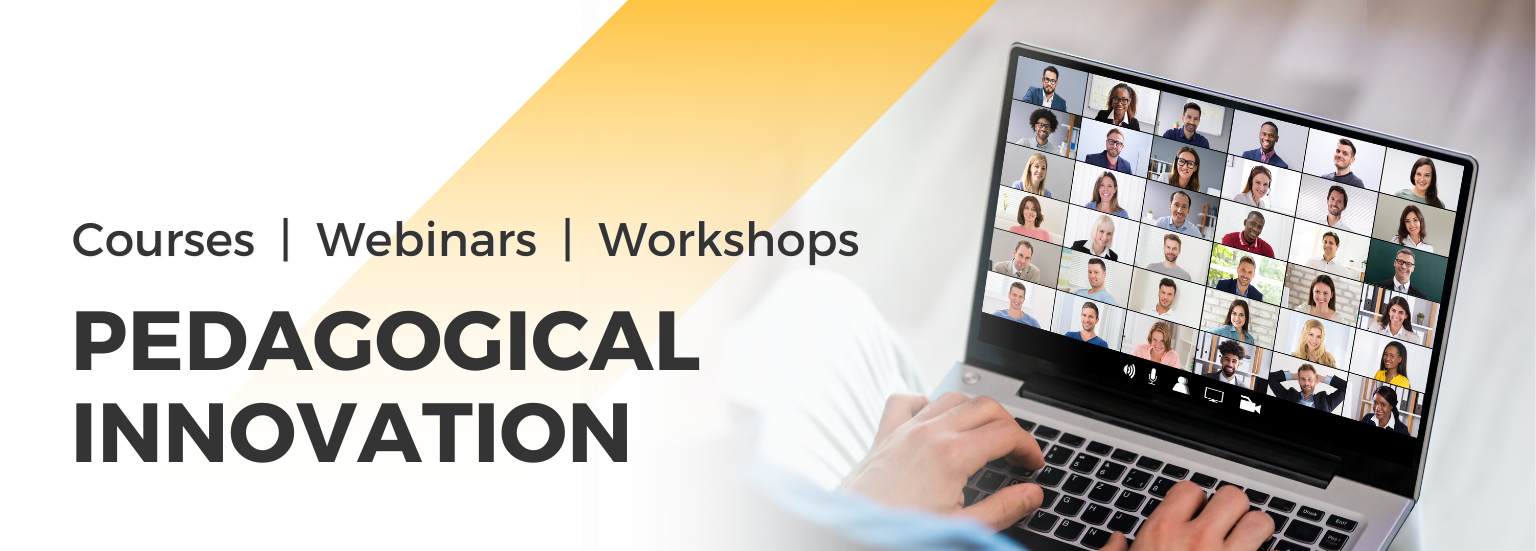
One of EUNICE's main objectives is to strengthen support for pedagogical excellence in its member universities by creating a pedagogical support unit and a platform for achieving pedagogical improvement. To this end, a set of criteria for pedagogical excellence is being developed and, at the same time, a pedagogical training calendar is being defined for the 2024/2025 academic year, with the aim of increasing teachers' awareness of opportunities to develop their pedagogical skills through EUNICE or other service providers.
This academic calendar will start with the enrolment in the Open Networked Learning (ONL) course, offered by the University of Karlstaad, which will consist of 2 phases: the first phase will begin in september with the involvement of pedagogical managers/developers/engineers from the various pedagogical centres of EUNICE universities, who will later support the second phase that will involve teachers in this course.
The ONL course is a 12-week open, collaborative and networked learning course that offers teachers, course developers, educational programmers and educational technologists in higher education the opportunity to explore the potential of open, networked learning with colleagues from all over the world in a multidisciplinary and cross-cultural context.
The course has been running for over 10 years, having been initiated by Lars Uhlin and Maria Knvarnostrom from the Karlinska Intitutet (SW) and Chrissi Nerantzi from the University of Manchester (UK) in 2012. The main aim of this course is to take international and inter-institutional collaboration to a whole new level, thus reducing the need to run separate courses at each of the institutions, while at the same time giving the opportunity to further develop collaboration and networking between the different institutions.
Why the initiative is important
This initiative is a crucial kick-start for pedagogical excellence within the EUNICE consortium. This course is important for pedagogical improvement and career motivation, specifically for teachers, course developers, educational programmers and educational technologists in higher education, allowing them to be aware of the opportunities to develop their pedagogical skills. The aims of the course are to provide participants with opportunities to explore and gain experience with open and collaborative online learning in order to understand the value, potential and challenges of using digital learning spaces to support teaching and learning.
Outcomes expected
The objective of the course is for the participant to acquire knowledge, understanding, skills and abilities in order to be able to:
● explain, discuss and reflect on different aspects of online learning such as digital literacy, collaborative learning and openness.
● critically reflect on questions concerning open networked learning related to own teaching practice.
How this would benefit the teacher and finally students
Distance learning is the future of education, guaranteeing access to any subject, regardless of location. This reality requires teachers to keep up with digital teaching trends and adapt their methodologies. However, it's not so easy to change, as technologies grow and change so quickly. This course will undoubtedly help teachers to learn more about digital classrooms, new tools and methodologies for capturing students' attention and also to share experiences and challenges with other colleagues, enabling them to improve their teaching skills. As a result, students will also be more motivated and engaged, since teachers will know better how to communicate with distance learning students and better understand their needs.
Course structure
Week 1: Getting started (1 week);
Week 2: Connecting (1 week);
Topic 1: Online participation and digital literacies (2 weeks);
Topic 2: Open learning - sharing and openness (2 weeks);
Reflective week;
Topic 3: Learning in communities – networked collaborative learning (2 weeks);
Topic 4: Design for online and blended learning (2 weeks);
Topic 5: Lessons learnt - future practice (1 week)
More details here.